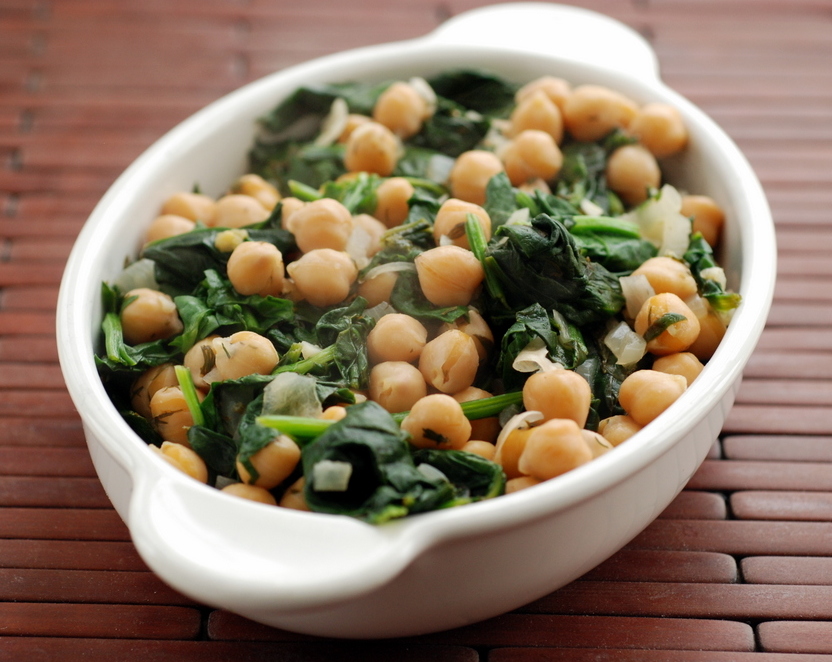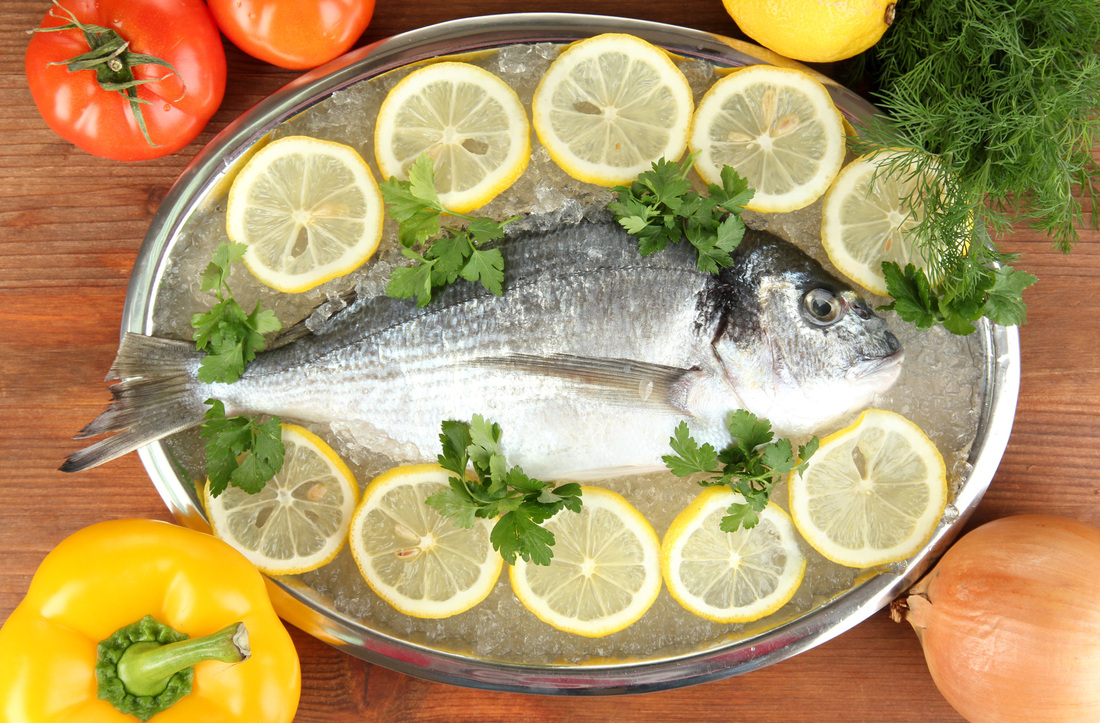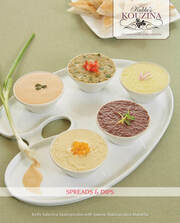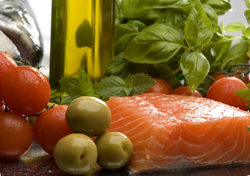
Greece, especially Karpathos (the island where we’re from), is surrounded by water, so fish is plentiful, making it the country’s main source of protein. Greeks eat more lower-fat plant proteins (such as nuts, seeds, and legumes) and fewer high-fat meats. Whole foods are the norm and processed foods are frowned upon. Daily meals include whole grains, healthy fats (like omega-3s), and fresh vegetables and fruits are in abundance. And lets not forget the red wine!
healthy Greek
|
Better brain health: Ditch those “senior moments”! A recent study published in JAMA Internal Medicine concludes that a Mediterranean diet rich in olive oil and nuts is associated with improved cognitive function. A current study from the American Academy of Neurology shows that a Mediterranean Diet May Have Lasting Effects on Brain Health: “As we age, the brain shrinks and we lose brain cells which can affect learning and memory,” said study author Michelle Luciano, PhD, of the University of Edinburgh in Scotland. “This study adds to the body of evidence that suggests the Mediterranean diet has a positive impact on brain health.” And according to a WebMD Health News article, Mediterranean Diet May Save Brainpower, research revealed that eating more like a Greek and less like an American can boost your brain power: “Older adults who adhere to the heart-healthy Mediterranean diet—rich in fruits, vegetables, olive oil, legumes, fish, and moderate amounts of wine—appear to have less mental decline with age, according to one of the latest studies on the health benefits of eating like a Greek.”
Better longevity: Harvard researchers say that the Mediterranean Diet is Linked to Longevity, concluding that a greater adherence to the Mediterranean diet was associated with a higher life expectancy, and that even small changes in diet made a difference. A WebMD Health News article, Mediterranean Diet May Boost Longevity, reported on research that backs up the longstanding Greek diet of less meat, more veggies, olive oil, and a little wine. “Past research already has linked the so-called Mediterranean diet with longevity. A new study finds that certain aspects of the diet—such as high consumption of vegetables and olive oil, low consumption of meat, and moderate consumption of alcohol—may be more strongly linked to longevity.” Other benefits from this diet that contribute to longevity include lower cholesterol and better heart-health. |
Better bone density: According to a Pennsylvania State University study, Dietary Saturated Fat Intake Is Inversely Associated with Bone Density in Humans: Analysis of NHANES III, saturated fat has a direct effect on bone density, “…because the relative proportion of fatty acids in the diet is thought to have important effects on bone health, it is possible that the Greek diet conferred protection and/or reduced risk associated with consumption of different kinds of fats.”
my big fat Greek pantry
Lemon
Though this isn’t a spice or herb, it’s necessary to mention because just about everything in Greek cooking has lemon in it and it adds iconic flavor. Bottom line, lemons are to Greek cuisine like curry is to Indian food. You’ll find lemon mostly combined with the other Greek essentials of olive oil, oregano, and garlic. Together, these four flavors can turn ordinary food into a Greek dish—poultry, fish, lamb, tomato salad, artichokes, avgolemono soup, sauces, and so much more—and the result will make you a hero in your own kitchen. Our favorite uses include ladolemono (olive-oil and lemon dressing, λαδολέμονο, pronounced lah-thoh-LEH-moh-noh): Toss with cooked broccoli or spinach; combine with oregano and garlic to marinate lamb and roast with potatoes; combine with parsley to dress grilled/broiled fish. Growing up, our mom gave us cold lemon juice for nausea and warm juice for diarrhea. It worked every time and we’re never without lemons in our fridges! So when life hands you lemons, be Greek about it!
Garlic
No matter how you slice, chop, crush or mash it, ya gotta have garlic when it comes to making skordalia (garlic dip, σκορδαλιά pronounced skor-thah-LIAH), slow-roasted lamb, lentil soup, and a ton of other dishes. In Greek cooking, its usual companion is lemon juice or vinegar, which balances out the flavor of each dish perfectly. Eating garlic also helps to ward off a cold and lower cholesterol.
Click here for recipes.
a simple plan
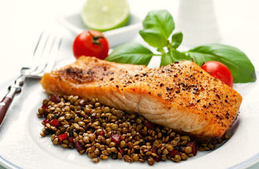
~Eat fish at least twice a week.
~Eat red meat just one or two times a month (or less than that if you can do without).
~Omega-3 fats rule, so go for walnuts, fatty fish (like salmon), and olive oil.
~Be social at mealtime. It’s not just about eating well, it’s about surrounding yourself with loved ones to appreciate it!
~Exercise daily (walking is a great way to get started if you don’t have a routine).
I hope you enjoyed learning about our Greek way of eating that can help bring a healthy lifestyle into your New Year. Our month-long Mediterranean diet series will power up your feel-good resolutions!
Sign up for our e-newsletter (if you haven’t already) and stay connected on social media for cooking tips and recipes, as well as for all Kukla's Kouzina updates and news.
Thanks for following us and we’ll see you next Monday.
Until then~
Kali orexi! Good appetite!
Kelly
Web design by Kelly Salonica Staikopoulos


